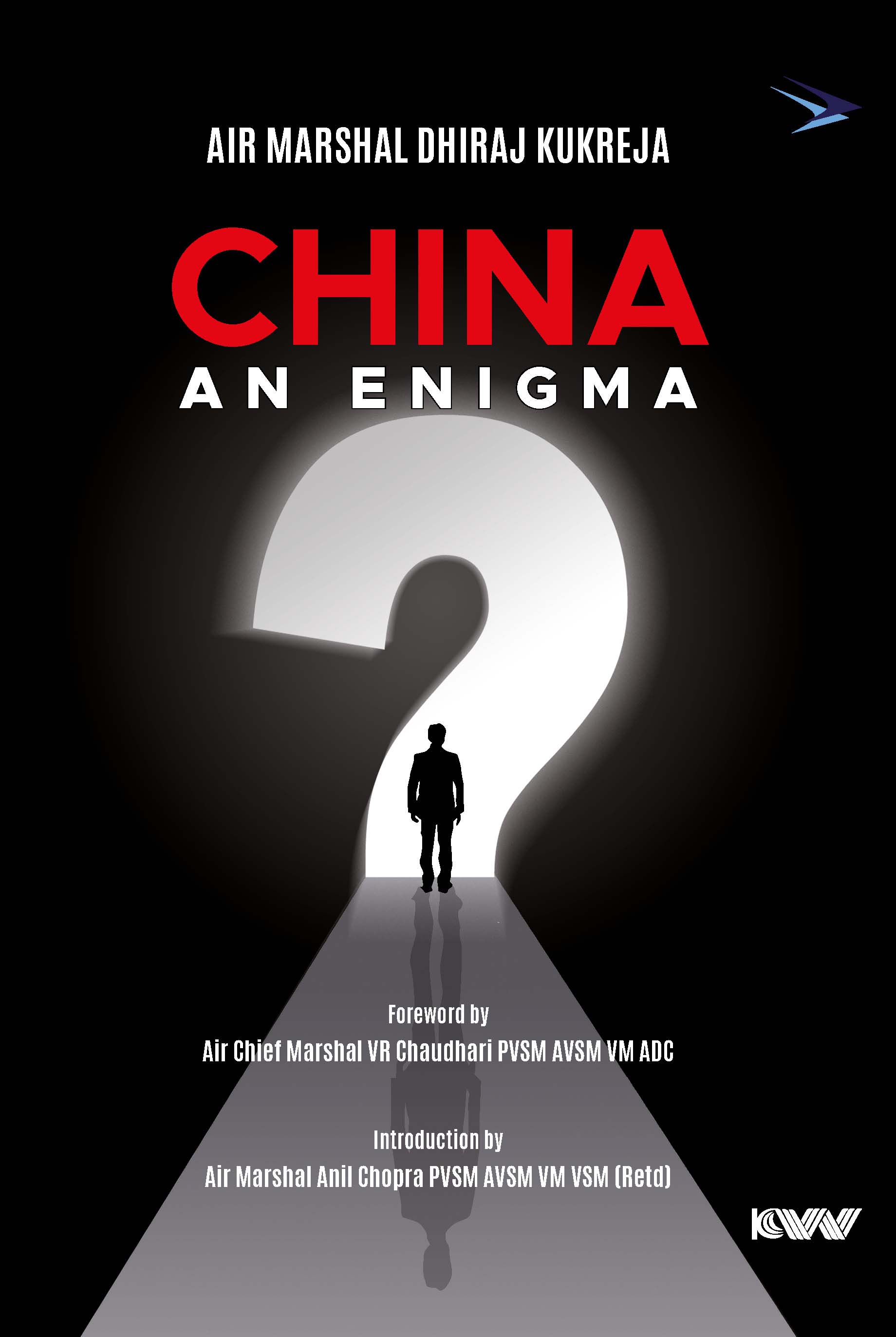Subjects
Recent View(s)
- Ghost Village
- Nuclear Deterrence and Diplomacy
- Resource Allocation and Management in Defence: Need for a Framework
- Indian Ocean Challenges: A Quest for Cooperative Solutions
- Expert or Charlatan?: The Rise and Rise of Management Consulting
- Three Chinese Travellers in India
- BANGLADESH and Its Security Relationship with External Powers
- CHINA: An Enigma
CHINA: An Enigma
Air Marshal Dhiraj Kukreja
"China’s phenomenal rise as a major power centre in global geopolitics under the shadow of its closed-door Communist system presents unique strategic assessment challenges for analysts and foreign affairs specialists. As a starting point, the book ‘China: An Enigma’ provides unique insights into China’s history and its role in shaping some of its actions — past and present. For the serious student of China’s contemporary studies, a must read."
—Air Chief Mshl NAK Browne, PVSM AVSM VM
Former Chief of Air Staff
"China has been in the news for some time, for some reason or the other. The voices against ‘China seem to be reaching a crescendo post-COVID-19, making the timing and the title of this book absolutely apt. China, although much has been written about it, continues to remain an enigma. The author has made a commendable effort to explain China’s actions, and the reasons for its behaviour. I strongly recommend the book for all China-watchers.’"
—Air Mshl KK Nohwar, PVSM VM
Former Vice Chief of Air Staff and Former DG CAPS
"China is obsessed with history. The effects of ancient history on all its present actions, or its desire to be the ‘number one’ in the world order, to avenge the ‘century of humiliation’ has been highlighted in the book. Given China’s opacity, it maintains ‘deception, concealment and surprise’ as its key elements of battle winning strategy. It is difficult to read its intentions. The book makes a detailed study on China’s psyche, and its military cum strategic thinking, so important when dealing with it on all frontiers. The author has taken pains to cover all aspects of China’s behaviour, both as a country and its leadership, past and present. An important read for policy makers, strategic analysts, academia, and the Armed Forces."
—Lt Gen (Dr) V K Ahluwalia, PVSM AVSM** YSM VSM
Director, Centre for Land Warfare Studies (CLAWS)
Former Army Commander, Central Command
Book
China has alternated between long periods of isolationism and interaction with other nations. This resulted in internal squabbles and external wars, throughout its long history. Contemporary China, after Mao’s death, slowly and steadily moved ahead on the path of economic growth. The process to strengthen the military began some years later, when it realised that it too is necessary to go alongside the economic growth. Western liberals and optimists hoped to welcome China into the global economy as a ‘responsible stakeholder’, with an accompanying political transformation. How wrong was their premise!
China, in the twenty-first century, is no longer a ‘rising power’, but has grown as a competitor to USA, which had gotten used to having its way in a unipolar world after the end of the Cold War. China has emerged as a global actor, affecting the liberal world order in nearly every region and every major issue; it has its ambitions of being able to dictate the world order on its terms, although it still has a long way to go. Nevertheless, it has developed the capabilities, to quite an extent, to alter the international geopolitical architecture. Whether it does this peacefully, or as a belligerent, is the attendant question, since capabilities and intentions have to be dealt with separately.
This volume would explain as to why China does, what it does, influenced by its long history, its desire to avenge the ‘century of humiliation’, while analysing the actions of the leaders of the past and present. The future is not easy to predict, considering the path it is now following!


 Political Science
Political Science
